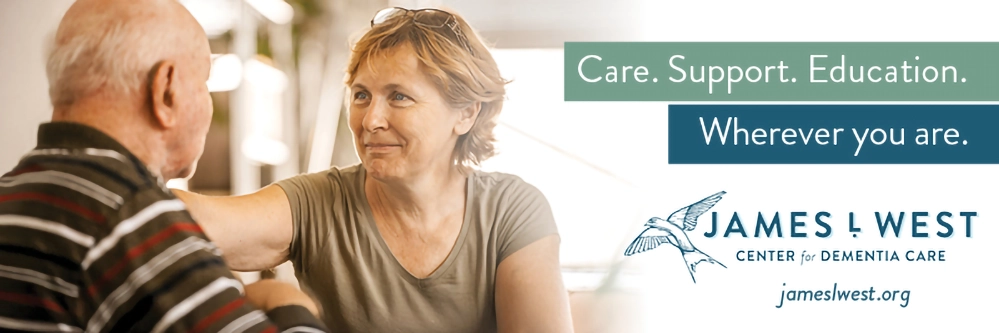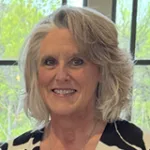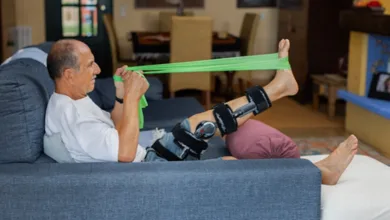How Faith and Spirituality Help Families Navigate Dementia
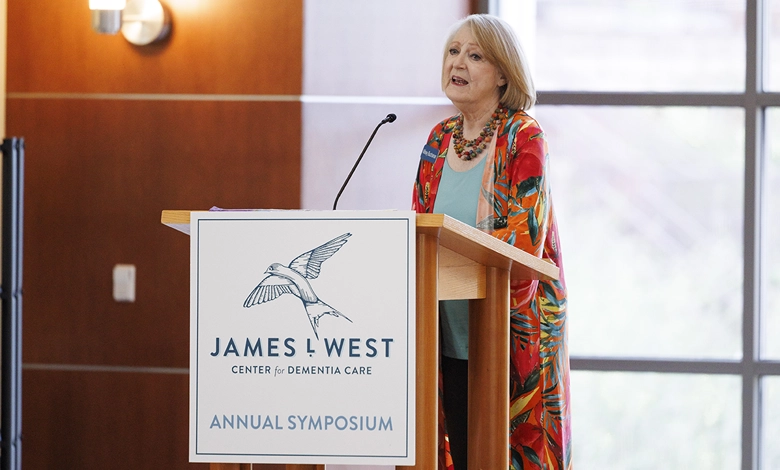
When Eunice West watched dementia slowly take her beloved husband, James, she made a promise that would change countless lives. Thirty-two years later, the James L. West Center for Dementia Care continues her mission of compassionate care—and through our work, we’ve realized just how vital spirituality and faith are in this journey.
The intersection of faith and dementia often leaves families struggling with profound questions: Does my loved one still know God? Can they find peace? How do I hold onto hope when everything feels lost?
These questions led us to host our inaugural “Spirituality and Dementia” symposium this spring at First Presbyterian Church in Fort Worth, Texas, bringing together professional and family caregivers in search of answers. Here are the important topics we discussed.
When Dementia challenges faith: What families need to know
Dementia doesn’t erase the soul. This powerful message came from internationally acclaimed Christian author Missy Buchanan, a recognized authority on faithful aging, who shared insights that resonated deeply with our audience of families and healthcare professionals.
Buchanan’s observations from decades of experience revealed truths that many families desperately need to hear:
Every person’s dementia journey is unique. There’s no roadmap, no predictable timeline—just the need for individualized care and understanding.
People with dementia experience profound opposites—moments of desolation alongside unexpected beauty, fear mixed with surprising hope. These contrasts can be difficult for families to navigate, but they’re part of the human experience of living with dementia.
Early-stage individuals often remain responsive and articulate. Too often, we stop listening once we hear the diagnosis. But those living with early dementia have wisdom to share about their experience—if we’re willing to listen and learn.
Many develop a deeper spiritual connection. Rather than losing their faith, many older adults, including those with dementia, experience a growing trust and sense of God’s presence, finding joy in the simple elements of creation, such as sunrises and sunsets.
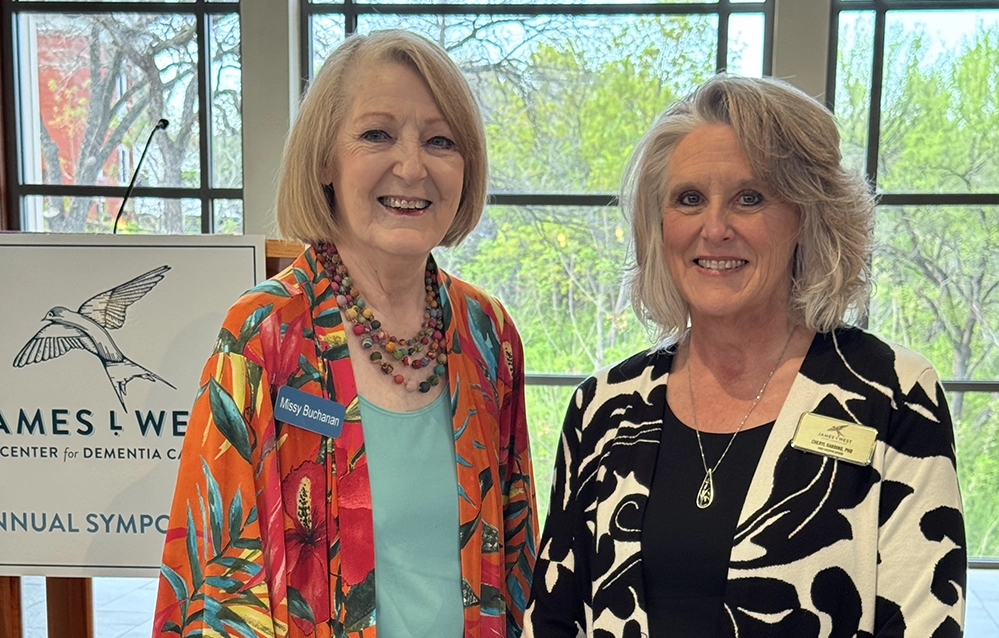
The most critical shift: from problem to person
Buchanan’s most crucial message challenged how we think about dementia entirely: “We need to shift from thinking that persons with dementia are a problem to solve; they are people to be loved.”
This perspective transforms everything—from how families approach daily care to how they maintain emotional and spiritual connections with their loved ones.
Human identity cannot be reduced to a medical diagnosis. The person you love is still there, deserving of dignity, respect, and spiritual care throughout their journey.
Spiritual coping strategies for dementia caregivers
At the West Center, we’ve learned that caregivers need support in two critical areas: providing enhanced levels of care and caring for themselves as the first line of defense against the challenges of dementia.
Our symposium featured practical guidance on spiritual coping mechanisms that actually work, such as:
Building community in the wilderness
When dementia feels like wandering in a wilderness, community becomes essential. Faith communities that understand dementia can provide:
- Non-judgmental support for families
- Adapted worship experiences
- Respite for exhausted caregivers
- Spiritual guidance during difficult decisions
Grief and spiritual resilience
Dementia involves ongoing grief—grieving the person as they were while loving the person they are now. Spiritual practices that help include:
- Prayer and meditation adapted for cognitive changes
- Finding meaning in small, present moments
- Accepting help as a spiritual practice, not a failure
- Maintaining hope without denying reality
Legacy, tradition, and intergenerational connection
The spirit remembers what the mind may forget, and families find comfort in:
- Sharing family stories and traditions
- Playing familiar hymns or spiritual music
- Creating memory books with faith milestones
- Involving grandchildren in adapted spiritual activities
Cultural sensitivity in spiritual dementia care
Dementia affects all communities, and spiritual care must honor diverse cultural and religious backgrounds. Our symposium addressed how different faith traditions approach dementia care, recognizing that:
- Spiritual needs vary across cultures and religions
- Family roles and caregiving expectations differ
- Communication styles and comfort with discussing difficult topics vary
- End-of-life spiritual care requires cultural competency
Faith in the fog: Practical hope for uncertain times
Our own Jaime Cobb Tinsley, Vice President of Community & Caregiver Education, addressed the reality many families face: “How do we hold onto hope when dementia brings such uncertainty?”
Practical spiritual strategies include:
- Focusing on today’s gifts rather than tomorrow’s losses
- Finding God in caregiving moments, not just formal worship
- Accepting that faith questions are normal and healthy
- Seeking spiritual direction, specifically trained in dementia care
Hollie Lowe, LPC, Director of Education & Family Support Services, emphasized that spiritual coping isn’t about having perfect faith—it’s about finding practices that bring peace in the midst of difficulty.
While this symposium focused on faith-based approaches to dementia care, the core message—treating people with dignity and maintaining human connection—applies to all families, regardless of religious background.
Resources for families seeking spiritual support
Every family deserves support on this journey. Whether someone is newly diagnosed or has been living with dementia for years, spiritual resources can offer comfort and practical guidance.
Professional support is available through:
- Trained chaplains
- Spiritual directors familiar with dementia
- Faith communities educated about cognitive changes.
Educational resources help families understand how to adapt spiritual practices, maintain connections, and find meaning throughout the dementia journey.
About continuing this mission
For thirty-two years, the James L. West Center for Dementia Care has honored Eunice West’s vision of compassionate care for those impacted by dementia. Our mission continues to evolve as we learn more about the crucial role spirituality plays in dementia care.
We offer residential care, Senior Day Programs, Short-Term Respite Care, rehabilitation services, in-home care, and extensive caregiver education through our Dementia-IQ program. We believe that understanding dementia—including its spiritual dimensions—enables better care for everyone involved.
Free bilingual resources (English/Spanish) are available to help families navigate the intersection of faith and dementia care.
When dementia enters your family’s story, remember you’re not walking this path alone. Faith communities, professional support, and spiritual practices tailored to cognitive changes can offer the hope and comfort you need for the journey ahead.

